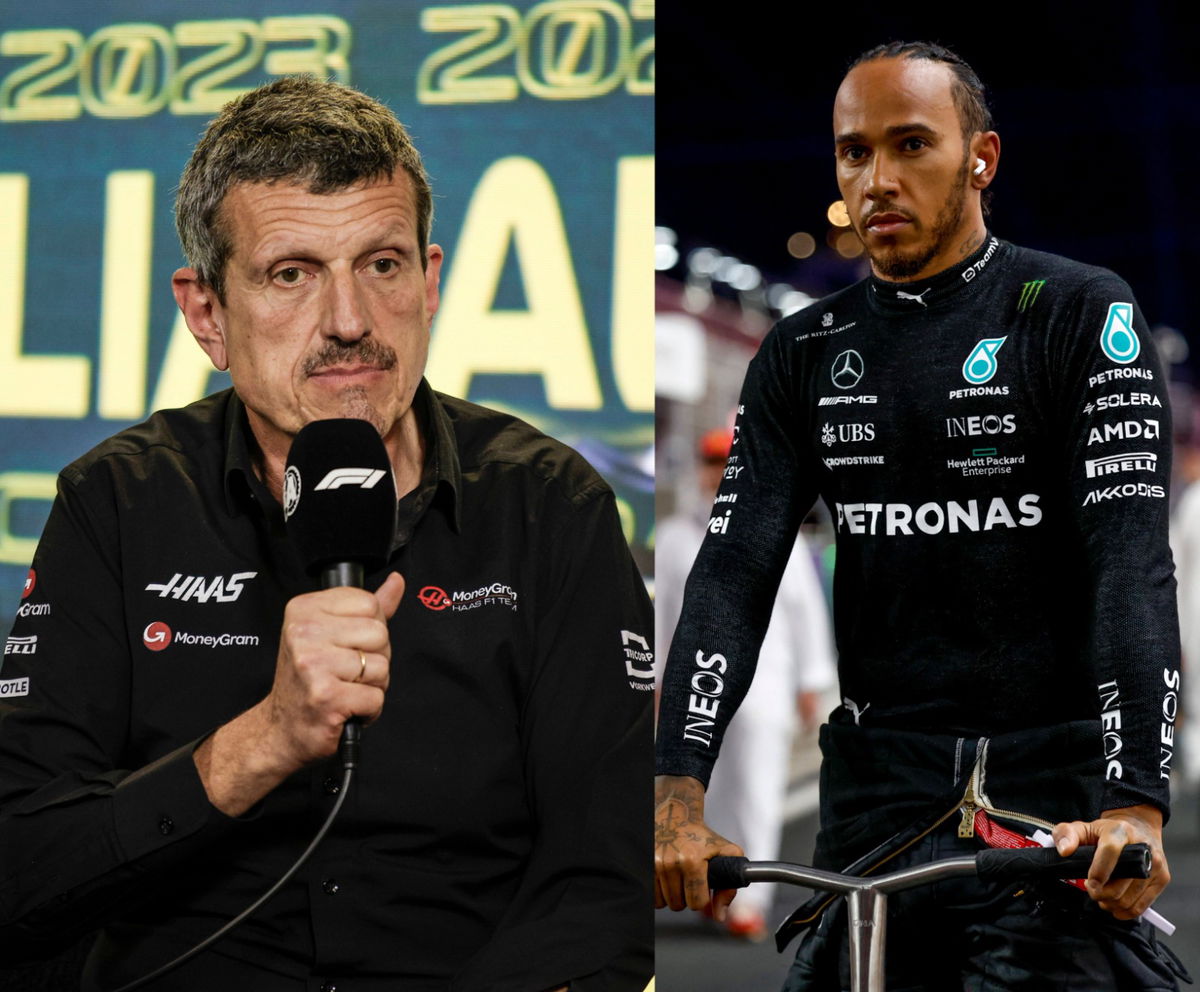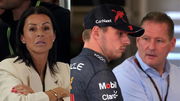
Imago
Image credits: Imago Gunther Steiner (L) and Lewis Hamilton (R)

Imago
Image credits: Imago Gunther Steiner (L) and Lewis Hamilton (R)
Dominance by a single team or driver can sometimes lead to predictable races and a lack of excitement on the track. Lewis Hamilton recently proposed a radical solution to address this issue. He called for a restriction on when teams can start developing their next car, aiming to prevent the dominant teams from gaining an early advantage and perpetuating their dominance. However, this proposal has faced stern rejection from Haas boss Guenther Steiner. Steiner believes that such measures would only create more problems, adding fuel to the already intense rivalry between Hamilton and Max Verstappen.
Watch What’s Trending Now!
With Red Bull’s flawless record of victories in the 2023 season, Max Verstappen currently holds a substantial lead over his competitors. This reign of dominance has sparked a fierce rivalry between all the other teams and Red Bull, leaving other teams trailing behind. In response, Hamilton proposed a specific date, around August 1, to limit the development of next year’s car, aiming to level the playing field and inject more excitement into F1. Guenther Steiner, however, stands firmly against Hamilton’s proposition, raising significant doubts about its feasibility and practicality.

Getty
19 March 2022, Bahrain, Sakhir: Motorsport: Formula 1 World Championship, qualifying, Bahrain Grand Prix: Team boss Günther Steiner of the Haas F1 Team comes into the paddock. Photo: Hasan Bratic/dpa (Photo by Hasan Bratic/picture alliance via Getty Images)
In Steiner’s viewpoint, implementing such a rule would create more problems than solutions. Steiner questions the ability to differentiate between the current year’s development and that of the following year, given the intertwined nature of F1. He highlights the inherent challenge of allocating resources and separating development processes, making it a complex endeavor.
ADVERTISEMENT
According to Motorsport Next Gen Auto, Steiner emphasizes, “How would you apply it? What is the next year and what is the current year? Everything you do this year is for next year, how would you allocate it? We would be creating a problem for ourselves that we could not solve.” He further elaborates, “There’s no one way to do it, and we do it the way we want.” [translated via Google]
ADVERTISEMENT
While Lewis Hamilton’s intentions to enhance competition and avoid prolonged periods of dominance are commendable, Guenther Steiner’s reservations about the practicality of his measures raise important questions. The introduction of ground effect regulations in the 2022 F1 season aimed to facilitate closer racing by enabling drivers to follow each other closely and engage in wheel-to-wheel battles more frequently. While these changes did enhance on-track action, the significant pace differences between teams remained apparent, limiting the visible impact of the regulations.
ADVERTISEMENT
Ground Effect Regulations Leading to Convergence, but Differing Opinions on the Impact
Lewis Hamilton, acknowledging the progress made in the second year of ground effect regulations, highlights the closing gaps among the teams. While Red Bull still maintains a noticeable advantage, teams like Aston Martin, Ferrari, and Mercedes have shown competitive performances, with varying results based on upgrade cycles. Hamilton expresses excitement about the regulations finally bringing teams closer together, as evidenced by McLaren’s recent surge and their ability to challenge Mercedes on pace.

Imago
July 9, 2023, Silverstone, Englan, Great Britain: Podium celebration. Lewis Hamilton GBR Mercedes W14 E Performance…during FORMULA 1 ARAMCO BRITISH GRAND PRIX 2023 – Jul7-9 Silverstone, Great Britain Silverstone Great Britain – ZUMAm217 20230709_zsp_m217_046 Copyright: xAlessioxDexMarcox
In contrast, Christian Horner, the team boss of Red Bull, shares a slightly more tempered view. He believes that stability in regulations is crucial for convergence and suggests that the field is already starting to come together. Horner points out that the power units have become more similar, while the chassis have evolved at a faster pace than the engines. He notes the noticeable progress from the start of the season, indicating that convergence is underway.
ADVERTISEMENT
Will Hamilton’s proposal gain support or face further resistance? Can the ground effect regulations continue to bridge the gaps between teams? The answers to these questions will shape the future of F1 and determine whether the sport can strike the perfect balance between competitiveness and unpredictability.
Top Stories
Who Is Oscar Piastri’s Father, Chris Piastri? Co-Founder of Multibillion Dollar Automotive Company

3 Years After His Death, Niki Lauda’s Wife Brutally Disrespects Him to Initiate $32,000,000 Battle Against Own Children

Language Barrier Didn’t Hold Back Lando Norris to “Hook Up” With OnlyFans Model: “We Talked by Mime”

Who is Ayumu Iwasa? The Red Bull Junior Team Driver from Japan

Are Max Verstappen’s Parents Separated? Everything to Know About His Difficult Childhood

WATCH THIS STORY | Mercedes React to FIA’s Admission of “Human Error” in the Verstappen-Hamilton Scandal
ADVERTISEMENT
ADVERTISEMENT
ADVERTISEMENT

